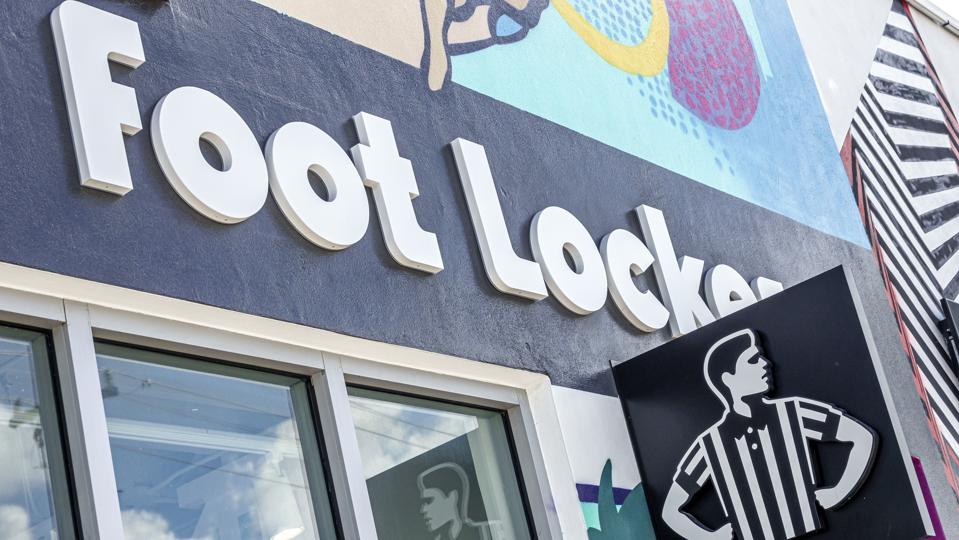Shares of Foot Locker dropped nearly 33% on Wednesday after the shoe retailer reported another decline in quarterly sales that it partly blamed on “consumer softness” and an increase in “shrink”—joining other major retailers who have linked falling sales this year on declines in consumer demand and increases in shoplifting.

The retailer reported its second-straight quarterly decline in sales this year.
Jeffrey Greenberg/UCG/Universal Images Group via Getty Images
Key Takeaways
- Foot Locker’s share price fell to $15.41 as of 11:32 a.m. on Wednesday, following the company’s quarterly earnings report, after closing at $23.20 on Tuesday.
- Total quarterly sales for the retailer decreased by 9.9% year-over-year to $1.9 million, according to its second-quarter report, which attributed a 9.4% drop in comparable-store sales to “ongoing consumer softness,” a “changing vendor mix” and its rebranding of Champs Sports, whose comparable sales decreased by 25.3% in North America.
- Foot Locker reported a loss of $5 million through its second quarter and a quarterly loss of five cents per share, compared to net income of $94 million or $0.99 per share in the same period last year, while projecting sales to drop 8% to 9% for the year after previously forecasting a decline of 6.5% to 8%.
- Profits were also affected by increased markdowns and “shrink”—an industry term referring to inventory loss caused by shoplifting, employee theft and return fraud—and increased spending for promotions, the company said on Wednesday.
- The company’s share price is down more than 58% so far this year, after another rough quarterly earnings report in May.
- CEO Mary Dillon said in May the company’s consumer demand had “softened” as shoppers were “resistant” to paying non-discounted prices and faced rising debt, according to CNBC, while suggesting the company would move away from a “constrained supply” of Nike products, which dominated most of its sales.
Tangent
Other major retailers have blamed a decline in sales on “shrink,” including shoplifting. Shares of Dick’s Sporting Goods fell as much as 24% on Tuesday, after CEO Lauren Hobart said shrink was a “large part” of the company’s decline in earnings. Shares of Macy’s dropped about 14%, after reporting a net loss of $22 million. Macy’s CEO Jeff Gennette told CNBC that “the consumer continues to be under pressure,” suggesting shoppers were experiencing rising credit card balances.
Key Background
Softer consumer demand—a lower drive by customers to buy products amid rising credit card debt or increased prices caused by inflation—has affected sales for other retailers, including Macy’s. Last quarter, Foot Locker reported an 11.4% drop in sales, causing its stock to fall as much as 25% after markets opened. The company noted it planned to increase discounts and spend more on promotions in an effort to drive demand while managing its inventory.
Dillon was hired as the company’s chief executive last year, as Foot Locker worked to shift away from its dependance on shopping malls and Nike products, which accounted for 70% of its sales in 2021. The company said in February that it would no longer have a single vendor account for more than 60% of total purchases. Dillon also noted an increased emphasis on digital sales, noting only 20% of customers purchased merchandise through Foot Locker’s website.
This article was first published on forbes.com and all figures are in USD.


